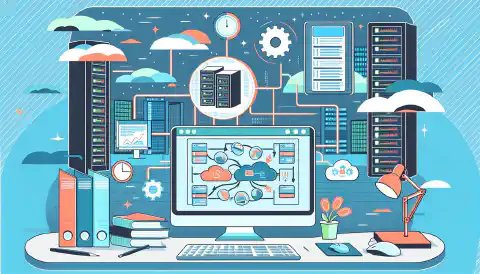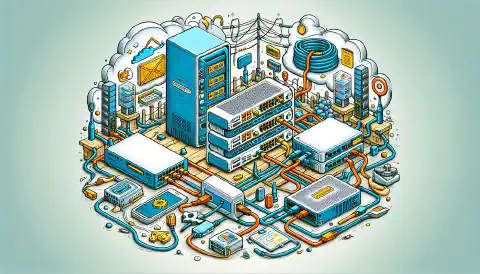What is System Administration?

Table of Contents
System administration is the process of managing and maintaining the computer systems, servers, and networks of an organization. It involves the day-to-day operations of the computer systems, ensuring that they are running smoothly and efficiently. System administrators are responsible for the installation, configuration, and maintenance of computer systems, servers, and networks. They are also responsible for ensuring the security of these systems and ensuring that the organization’s data is protected.
Difference between System and Network Administration
System and network administration are two different fields within the broader field of IT. System administration focuses on the management of computer systems, servers, and networks, while network administration focuses on the management of network infrastructure, such as switches, routers, and firewalls.
While there is overlap between these two fields, there are distinct differences in the skills required for each. System administrators need to be familiar with operating systems, such as Windows and Linux, and have a good understanding of hardware and software administration. They must be able to install, configure, and maintain computer systems, servers, and networks, and ensure that they are running smoothly and efficiently.
On the other hand, network administrators need to have a strong understanding of networking technologies, such as BGP, Trunking, and OSPF. They must be able to design, implement, and maintain network infrastructure, such as switches, routers, and firewalls. They must also be familiar with security technologies, such as firewalls, intrusion detection systems, and virtual private networks (VPNs).
Skills for System Administration
System administration requires a diverse set of skills, including:
Operating System Administration: Knowledge of operating systems, such as Windows and Linux, and the ability to install, configure, and maintain them.
Hardware and Software Administration: Knowledge of computer hardware, such as servers, storage devices, and network equipment, and the ability to install, configure, and maintain them.
Virtualization: Knowledge of virtualization technologies, such as VMware and Hyper-V, and the ability to install, configure, and maintain virtualized environments.
Security: Knowledge of security technologies, such as firewalls, intrusion detection systems, and encryption, and the ability to implement and maintain them.
Scripting and Automation: Knowledge of scripting languages, such as Python, Bash, PowerShell, and Ansible, and the ability to automate repetitive tasks.
Facets of System Administration
There are several facets of system administration, including:
Windows Administration: Knowledge of the Windows operating system and the ability to install, configure, and maintain Windows-based systems.
Linux Administration: Knowledge of the Linux operating system and the ability to install, configure, and maintain Linux-based systems.
Hardware and Software Administration: Knowledge of computer hardware, such as servers, storage devices, and network equipment, and the ability to install, configure, and maintain them.
Virtualization: Knowledge of virtualization technologies, such as VMware and Hyper-V, and the ability to install, configure, and maintain virtualized environments.
The Future of System Administration
The field of system administration is rapidly evolving, and new technologies are emerging that are changing the way that systems are managed and maintained. Some of the trends that are shaping the future of system administration include:
Cloud Platforms: Cloud platforms, such as Amazon Web Services (AWS) and Microsoft Azure, are becoming increasingly popular for hosting and managing systems and applications.
Infrastructure as a Service (IaaS): IaaS is a model in which organizations can rent computing infrastructure, such as servers and storage devices, on a pay-as-you-go basis. This is becoming a popular option for organizations that need to scale their computing resources quickly and easily.
Software as a Service (SaaS): SaaS is a model in which organizations can use software applications over the internet, without having to install and maintain them locally. This is becoming a popular option for organizations that need to use software applications, but do not want to deal with the hassle of installing and maintaining them.
Hardware as a Service (HaaS): HaaS is a model in which organizations can rent hardware, such as servers and storage devices, on a pay-as-you-go basis. This is becoming a popular option for organizations that need to scale their computing resources quickly and easily.
Conclusion
In conclusion, system administration is a critical field within IT that is responsible for the management and maintenance of computer systems, servers, and networks. System administrators need to have a diverse set of skills, including knowledge of operating systems, hardware and software administration, virtualization, and security. The field of system administration is rapidly evolving, and new technologies, such as cloud platforms, IaaS, SaaS, and HaaS, are becoming increasingly popular.






